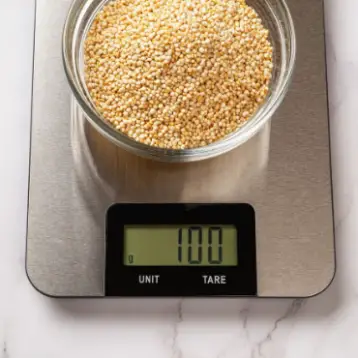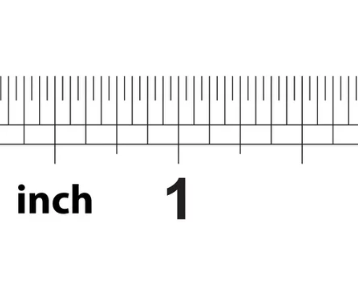Through the years, Java has dominated the realm of Android application development. Still, recently it has faced tough competition from Kotlin, raising the question, ” Kotlin or Java for Android, which is better?” In 2019, Google dumped Java and opted for Kotlin as its language for making Android software. Other companies have since followed, but that doesn’t mean Java has been wholly replaced; it’s still a worthy alternative.

Deciding between Java or Kotlin isn’t as simple as it seems for app makers. Both languages possess different strengths, and it’s worth understanding their differences for those considering switching to either.
Java
Released in 1995, Java is versatile, object-based, and used across various apps. Java’s versatility has been essential in creating applications and games and has played a key role in influencing the birth of common languages such as Python, Kotlin, JS++, and PHP.
Java is viewed as foundational software that other languages draw from and is taught as a core language for coding in universities. It’s not the simplest to learn if you consider the number of students who seek Java assignment help, but it does offer a great way to learn programming basics before moving to other languages.
Kotlin
Kotlin is a more recent language introduced in 2016. It’s a cross-platform and open-source language that offers type inference. It was designed to interoperate with Java by solving some API design flaws. It still relies on Java, and even in the Java vs. Kotlin debate, it’s argued that Kotlin probably wouldn’t exist without Java.
Kotlin quickly became popular, especially after Google confirmed it as its official coding language for developing Android software. Despite its short existence, Kotlin is now used in at least 20% of the existing apps in the play store. On top of that, more software makers are moving to Kotlin as they believe it represents the future.
Resemblances Between Java and Kotlin
To properly compare the two, we first must identify their various similarities. So, how’s Kotlin similar to Java? The first similarity is that they’re both object-oriented, whereby the software is built on objects rather than a logic-based system. The two follow the steps of the first OOP languages like Simula and C++. Also, both coding languages are versatile. Java applies to diverse programs, such as embedded systems and databases, while Kotlin applies to JVM, JavaScript, and Android.
Key Differences Between Java and Kotlin
Aside from the length of their existence, several features set them apart:
- Usage – Java mainly makes standalone programs, while Kotlin primarily creates server-side and Android programs.
- Typing interface – with Java, the program maker needs to specify the data explicitly. Kotlin doesn’t mandate specifying variables.
- Ternary operator – Java supports a ternary operator, but Kotlin doesn’t.
- Data classes – making classes in Java entails making boilerplate code and keeping data in groupings. Kotlin integrates data groupings and can generate the boilerplate code you need during compilation.
- Checked exceptions – Java supports unanticipated blunders that transpire when a program runs in the course of compile time, but Kotlin doesn’t.
- Community support – Java has greater support from its community than Kotlin because of its existence for a longer period. Kotlin is still new, and its community is small.
Another significant difference between Java and Kotlin concerns null safety. Kotlin computer language is null safe by default; therefore, you cannot experience app crashes from NullPointerException. Java doesn’t provide null safety; developers must always check for NullPointerExceptions.
Which Offers Better Performance?
As the newer option, Kotlin maximizes the weaknesses of Java and might even seem like its possible replacement. Is Kotlin faster than Java? Yes. Kotlin is more succinct, and app makers can write code faster when using it than Java; it decreases lines of code by almost half. However, in the compiling stage, Kotlin takes longer than Java.
Memory usage is another aspect of evaluating these two computer languages. Memory is crucial to making software because developers want their programs to launch and run speedily. Despite being lightweight, Kotlin tends to use larger memory than Java. So, you might want to stick with Java for apps where you believe extensive memory usage will affect the experience.
There isn’t much difference performance-wise when weighing up Kotlin vs. Java performance. The difference is minimal and results from their difference in features. Most of them cancel each other out. For example, Kotlin uses higher-order functions instead of Java’s Lamda, which improves performance. At the same time, Kotlin’s bytecodes slow down performance compared to Java because they assert nullity checks.
Also Read: Top Five Programs Which Makes Student Life Easier
Which Language Is Fitter for Android?

Even though Google made Kotlin their chosen language for creating Android software, the makers still have a choice concerning Kotlin vs. Java Android capabilities. Kotlin’s main advantage is syntax. Unlike Java, it needs fewer lines of code to make a program. It implies that pinpointing mistakes is quicker and requires less time to code. The swiftness in coding using Kotlin also means that maintaining Kotlin software takes less time than maintaining Java software.
On Java’s side, you’ll find more software makers in the market because it’s been available for longer, and they have more documentation and a great community. Also, Java is fitter for lightweight apps because it requires less memory. Moreover, Java is recommended for large, more complex apps requiring multiple program makers.
Kotlin vs. Java for Android software making is a decision that comes down to preference because the race isn’t that close anymore. Kotlin has the edge in various areas and promises more for the future.
Also Read: 5 Popular Software Development Methodologies.
Final Thoughts
Major companies are ditching Java and switching their Android programs to Kotlin, but that doesn’t mean Java will become irrelevant. Is Kotlin better than Java? For Android software, Yes. But they can both have the potential to coexist due to their advantages and drawbacks.









